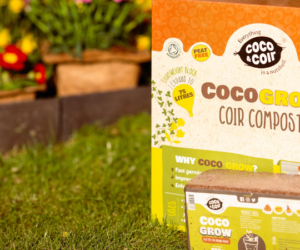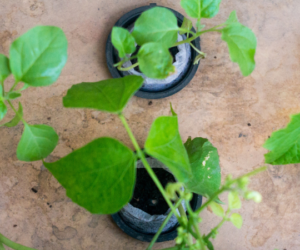The Science of Soil and How Multipurpose Compost Can Enhance Soil Fertility
Every gardener knows the ever-so-important role soil has on the growth of their plants. It is quite literally the base for your plants to grow. Soil provides essential nutrients, moisture, oxygen, and root support that plants need to grow and flourish. Healthy soil can also help keep those nasty critters and slugs away.
In this article, we will dig a little deeper (pun intended) into the science of soil and understand what makes fertile soil fertile. We will discuss how we can use multipurpose compost to enhance soil fertility.
A Deeper Look
Before looking at how to improve soil fertility, let us first understand the components of soil and how they interact with one another. The main components of soil are:
- Minerals: Making up about 45-95% of its volume, minerals are the largest components of soil. They are formed by the breakdown of rocks and are divided into three size classes – sand, silt, and clay. Soil texture is determined by the relative proportions of these size classes.
- Organic Matter: These are made up of decaying remains of plants and animals. Although it makes up only 1-5% of soil volume, it is essential for soil health.
- Living Organisms: Soil has its own little ecosystem going on. Many organisms call soil home including bacteria, earthworms, fungi, insects, and other small creatures. They play a vital role in nutrient recycling.
- Water: H2O makes up anywhere from 2-50% of soil volume depending on the type of soil and climate. Water is needed for your plants to absorb nutrients and for microbes to decompose organic matter.
- Air: Air occupies the tiny spaces between soil particles. Air is essential for the root respiration and for microbial activity.
How Multipurpose Compost Enhances Soil Fertility
Multipurpose compost is a nutrient-rich organic material that aids in improving the fertility of soil. It is made from a variety of organic materials such as coir, wood-fibre, food scarps etc. that have been broken down by microorganisms. This breaking down process creates a dense substance that is rich in nutrients and beneficial microbes.
Let’s look at some of how multi-purpose compost enhances the fertility of soil:
- Adds Essential Nutrients: Nitrogen, phosphorus, potassium etc. are some of the nutrients that composts contain. When mixed with soil, these nutrients are released slowly over time, providing plants with a steady source of nutrients to thrive on.
- For example, Coco Boost All Purpose Compost has added plant nutrients (NPK) that steadily feed plants for up to 6 months.
- Improves Soil Structure: Compost makes the soil more porous and crumble, improving its structure. This enhanced structure makes it easier for water infiltration, drainage and increased aeration. This is especially important for clay soils, which have a heavy and compact structure.
- Increases Organic Matter: Composts help improve the organic matter in the soil, which is essential for maintaining soil health and fertility. The organic matter in soil helps to hold water and nutrients in the soil and also supports beneficial microbes.
- Promotes Beneficial Microbes: Compost is teeming with various microorganisms such as bacteria and fungi that play a vital role in breaking down organic matter and converting it into nutrients for plants to absorb. They also help to deter pests and deadly diseases.
- Suppresses weeds: Composts can help to suppress weeds by creating a thick layer of mulch on top of the soil. This layer of mulch prevents sunlight from reaching the weed seeds, preventing them from germinating.
- Reduce Soil Salinity: Compost can help to reduce soil pH by making it less acidic. This is ideal for many plants which prefer to grow in neutral or slightly alkaline soils.
How To Use Multipurpose Compost Effectively
First things first, you need to choose the right type of compost to suit your needs. Each type of compost has its own set of unique properties and your choice boils down to what you want to grow. For example, If you want to grow leafy vegetables, go for a compost that is high in nitrogen. Likewise, compost that is high in phosphorous is good for fruiting vegetables.
Before applying compost to soil, it is a good idea to determine its pH, composition and nutrient levels. This will help you determine which type of compost to choose and how much of it you should apply.
Timing is also crucial. Fall or spring is the best time to apply compost; right before planting. This will give the compost sufficient time to break down and release its nutrients into the soil. Compost can also be used as a top dressing for existing plants during the growing season.
When applying compost to soil, make sure you spread it out evenly across the surface. Do not let compost pile up around the base of plants – it can damage the roots.
Compost helps retain water. So, watering your plants regularly is important, especially during hot, dry weather.
Here are some additional tips for using multipurpose compost:
- For vegetables: Apply a 2-to-4-inch layer of compost to the soil before planting. You can also side-dress your vegetables with compost during the growing season.
- For flowers: Apply a 1-to-2-inch layer of compost before planting. As with vegetables, you can also top-dress flowers with compost during the growing season.
- For trees and scrubs: Apply a 2-to-4-inch of compost over the root zone during spring or fall.
- For lawns: Apply a ¼ to ½ inch layer of compost during spring or fall
What Not to Do When Using Multipurpose Compost
- Do not use immature compost as it is still breaking down and can contain harmful parasites and bacteria.
- Do not over-fertilize with compost because too much compost can harm your plants. Always stay within the recommended levels.
- Do not use compost on edible plants if it contains manure that hasn’t been composted properly as it can contain harmful organisms that can make you sick.
- Do not use composts that contain pesticides or herbicides as they can harm plants as well as the organisms in the soil.
Tips From Our Online Advice Library
Keen for more gardening insights? Check out our other articles:
- Sustainable Gardening: 5 Tips to Grow Exquisite Summer Flowers
- How To Set Up a Greenhouse for Sustainable Year-round Gardening
- The Best Lightweight Compost for Roof Gardens
- ….more
Share Your Harvest with Us
No, not literally. Just a picture or two will do. Upload them on Instagram and tag @cocoandcoir. We will credit you if we use them. Also be on the lookout for exciting offers, contests and goodies!












